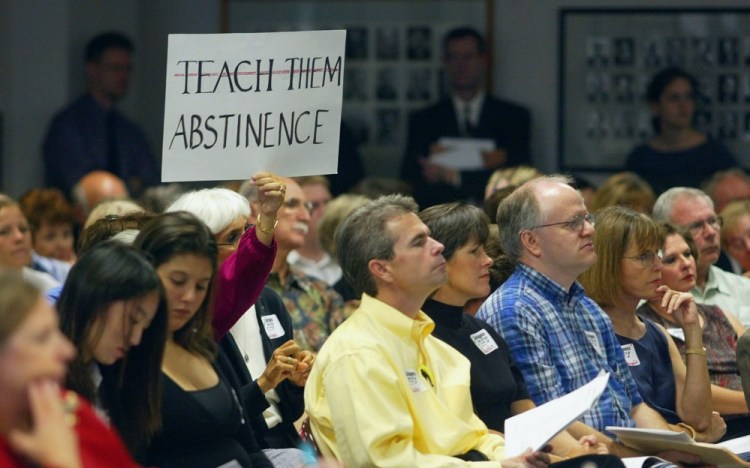Though sex education funding is a very small part of the federal budget, it’s one that speaks volumes about our nation’s commitment to public health. So it’s deeply alarming that the recently announced bipartisan spending deal boosts funding for worthless abstinence-only programs while flat-funding sound, evidence-based education.
The $15 million requested for abstinence education in the new budget – a 50 percent bump over the previous year’s funding – is just the latest swing of the pendulum. Between 1998 and 2007, no-sex-before-marriage programs received $50 million a year in federal money. That dwindled under Barack Obama, who requested $10 million for abstinence education in fiscal year 2016 and eradicated abstinence-only funding in fiscal 2017.
Abstinence-only education has been rebranded in the new budget as “sexual risk avoidance education,” but the goal is the same: to convince the nation’s teenagers that sex before marriage is harmful and that they should avoid it. It’s an approach with a lot of appeal to those who want to ignore the likelihood that young people won’t delay sex until marriage and will need to protect themselves against pregnancy and sexually transmitted diseases.
Unfortunately, there’s no evidence that abstinence education works. No association exists between earlier onset of sexual activity and comprehensive sex education, which discusses abstinence as one way to prevent pregnancy and disease but also teaches contraception and safer-sex skills. In fact, studies show, teens who have had comprehensive sex education are more likely to delay having sex than those who’ve received abstinence education.
What’s more, pregnancy outside of marriage and sexually transmitted infections are actually more common among young people who’ve had abstinence education than among their peers who underwent comprehensive sex education. That’s why states like Maine and New Hampshire, which require comprehensive sex education, have consistently lower teen pregnancy rates than states with abstinence-only or abstinence-centered programs.
Science doesn’t currently carry much weight in Washington, but the stakes are too high for inaction. If we want our young people to be prepared for life after school, we should resist efforts to replace evidence-based sex education with misinformation and moralizing.
Send questions/comments to the editors.


